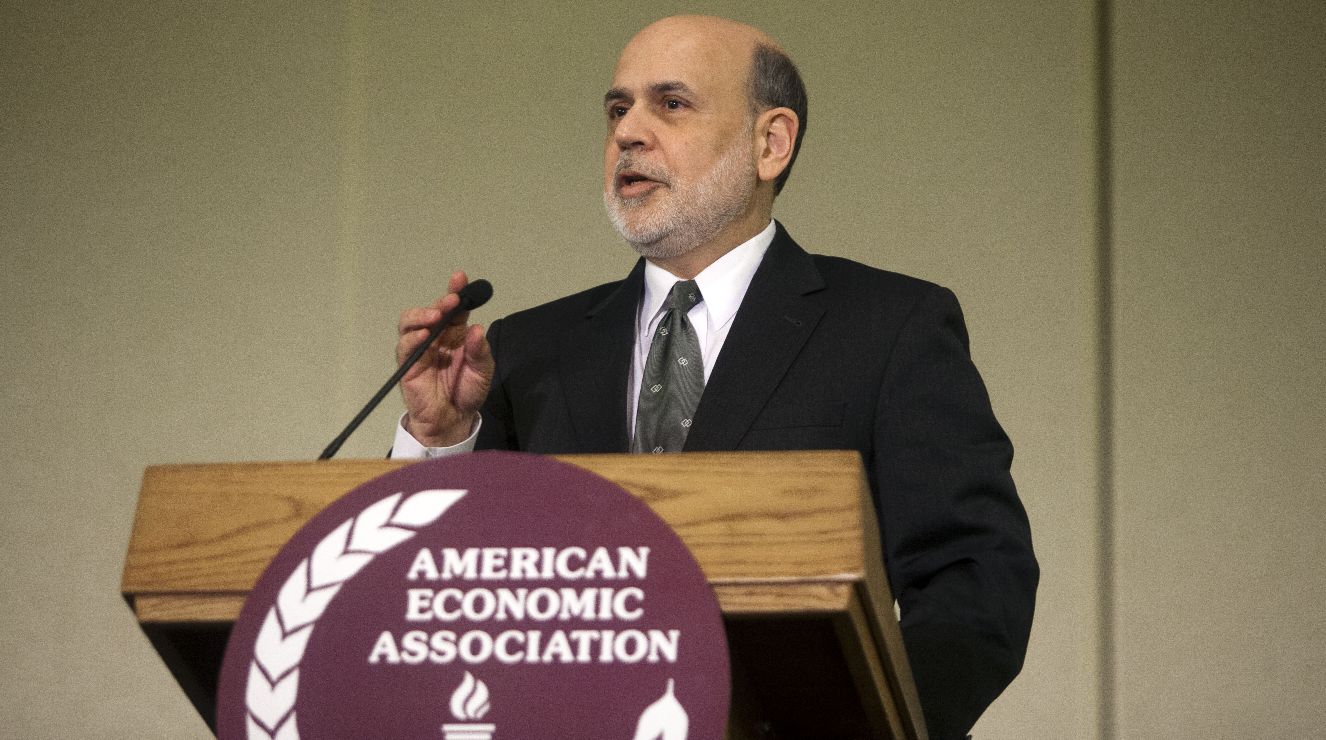2014 AEA Annual Meeting: find solutions from history

Fed Chairman Bernanke speaking at American Economic Association meeting
PHILADELPHIA-Upwards of ten thousands scholars gathered in Philadelphia during the first week of January for the American Economic Association’s annual meeting, where among other notable events, U.S. Federal Reserve Chairman Ben S. Bernanke gave a keynote speech.
Reviewing the accomplishments and incomplete tasks during his eight-year term, Bernanke addressed three main areas in his speech: the Federal Reserve's commitment to transparency and accountability, financial stability and financial reform, and monetary policy. A long-time advocate for increased transparency, Bernanke stressed that “a more explicit policy framework” will make monetary policy more predictable and more effective. Drawing a comparison between the current financial crisis and historical economic crises, he observed the “crisis bore a strong family resemblance to a classic financial panic, except that it took place in the complex environment of the 21st century global financial system.” He elaborated that the tools used to fight the crisis were also analogous to those that would have been used a century ago, such as provision of liquidity by the central bank, guarantees of liability, recapitalization, the provision of assurances and information to the public. Lastly, Bernanke said he is optimistic about the considerable progress within the American economy, but iterated that stimulating monetary policy is still necessary. He affirmed that the decision to reduce quantitative easing slightly reflected the improvement in employment, but admitted that the number of long-term unemployed remains unusually high and the recovery clearly remains incomplete.
A keynote speech by James Heckman, distinguished service professor of economics at The University of Chicago and winner of the Nobel Memorial Prize in Economics, addressed economic measures of human development. Reviewing recent research on the topic, Heckman analyzed the number of factors influential in the formation of an individual’s capacity, including interactions with the environment, parents, siblings and schools. Capacities shape preferences, expectations, and eventually influence and guide actions, Heckman said.
The best papers and outstanding researchers of 2013 were also announced at the meeting. The John Bates Clark Medal for 2013 was awarded to Raj Chetty from Harvard University for his contribution to tax policy, social insurance and education policy.
Zhang Xiaoxi is a reporter from the Chinese Social Sciences Today based in Washington D.C.
